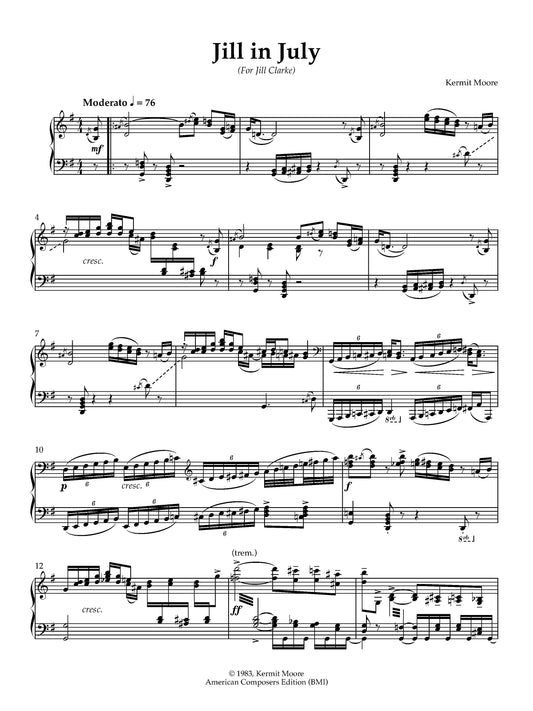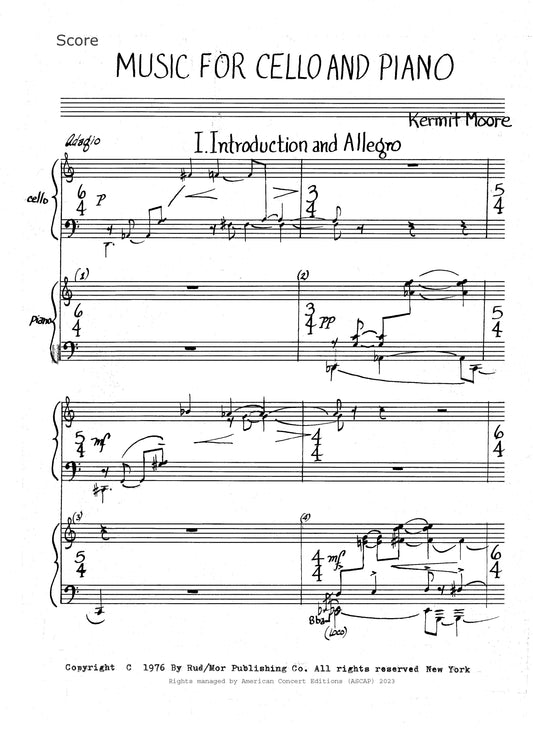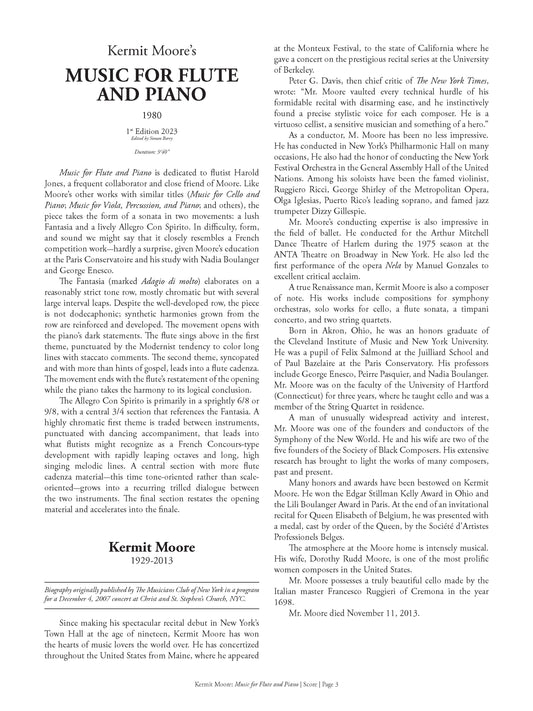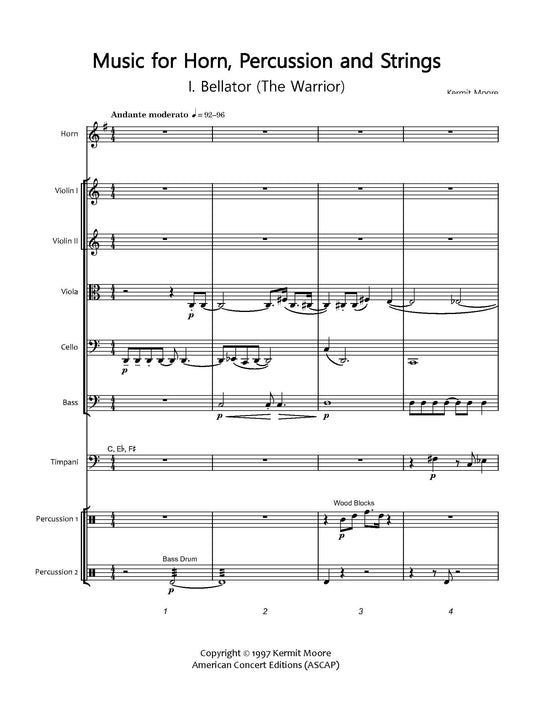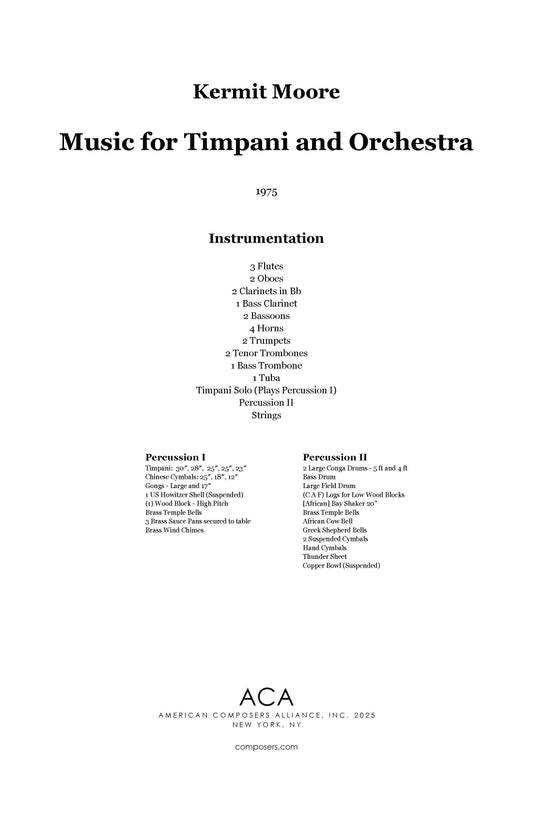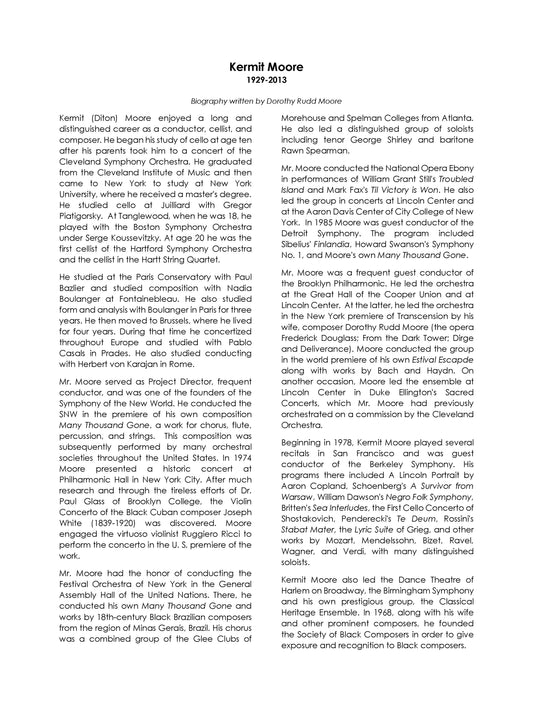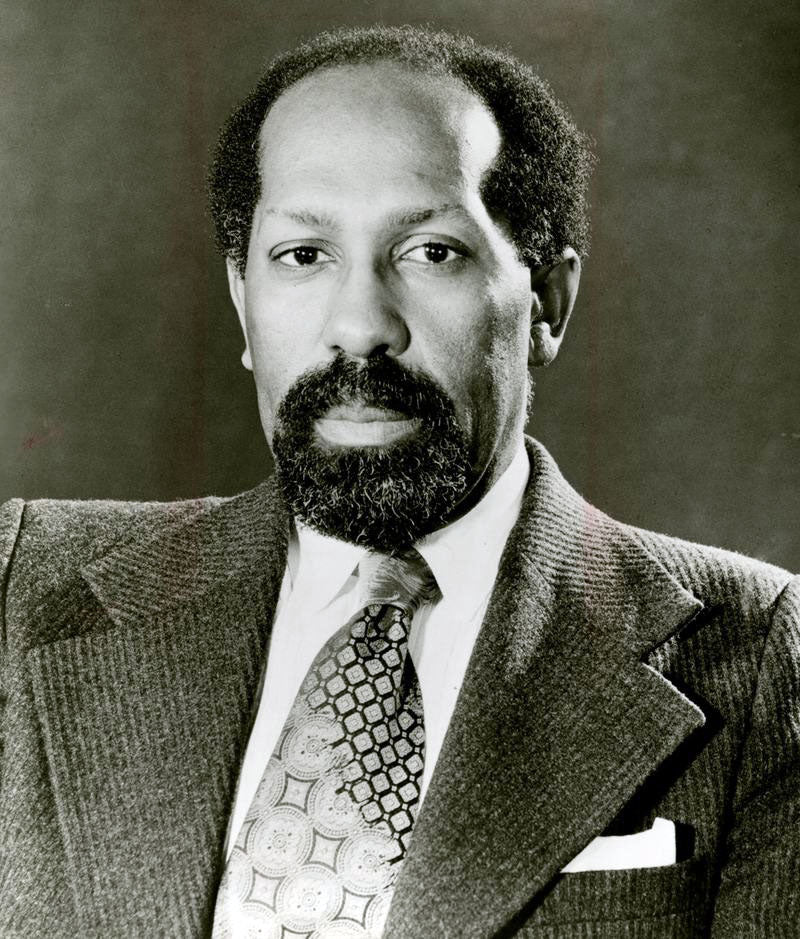
Moore, Kermit
1929 - 2013
A man of unusually widespread activity and interests, Kermit Moore (1929-2013) made his recital debut as a cellist in New York's Town Hall at the age of 19. He had received a Hancock Scholarship to study at Tanglewood at the age of 18. As a cellist, he concertized throughout the world, from the Monteux Festival in Maine to the Concertgebouw in Amsterdam. The New York Times called him "a virtuoso cellist, something of a hero." (Peter G. Davis).
As a conductor, he conducted in New York's Philharmonic Hall on many occasions and conducted the NY Festival Orchestra in the General Assembly Hall of the United Nations. He was one of the founding conductors of the Symphony of the New World. With his wife, Dorothy Rudd Moore, he founded the Society of Black Composers. His extensive research brought to light the works of many composers of the past and his contemporaries.
As a composer, he wrote for symphony orchestra, solo and chamber works with cello, a flute sonata, a timpani concerto, and two string quartets.
Born in Akron, Ohio, he was an honors graduate of the Cleveland Institute of Music and New York University. He was a pupil of Felix Salmond at the Juilliard School and of Paul Bazelaire at the Paris Conservatory. His teachers included George Enesco, Pierre Pasquier, and Nadia Boulanger. He was on the faculty of the University of Hartford.


